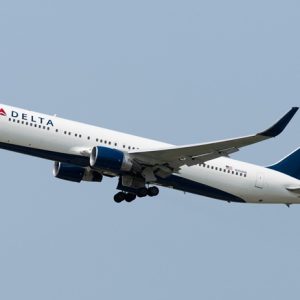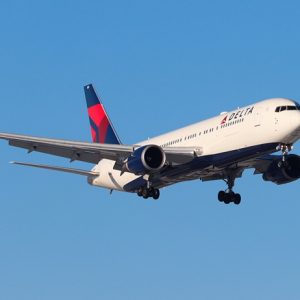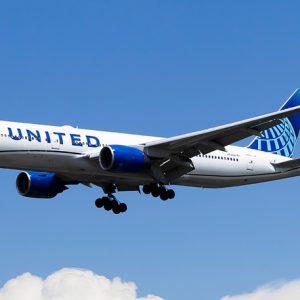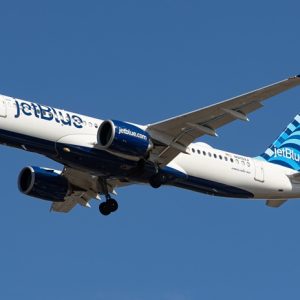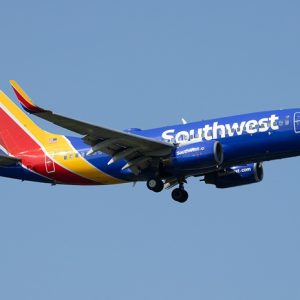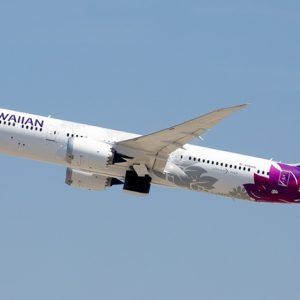
One of the biggest concerns economists have regarding the latest period of economic uncertainty created by geopolitical turmoil and a trade war incited by the United States is that high levels of inflation could soon return to the American economy.
While inflation may seem like a relatively unrelated phenomenon to airlines, it is quite possible that legacy carriers could face significant challenges even if widespread inflation were to return to the market.
Legacy airlines overwhelmingly derive the majority of their revenue from just two segments of the air travel market. For starters, they are very reliant on high-volume business travelers who routinely purchase tickets in premium cabins, which generate significant revenue.
Furthermore, premium leisure travelers, those traveling on vacation that book tickets in premium cabins, are also a key piece of the airline financial picture. Let’s take a deeper look at how inflation could be set to have a major impact on US-based legacy carriers.
What Exactly Is Inflation?
This may seem like a fairly basic question, but there are actually a few complexities behind the nature of inflation. At its core, inflation is an increase in prices, one that relates directly to macroeconomic factors in the economy.
Inflation does not refer to the increase in prices of any individual commodity, but rather of prices as a whole within the economy, a number that is often referred to as the consumer price index (CPI).
There are a few different kinds of inflation, and they do not affect airlines the exact same way. The first and most traditional kind of inflation is energy-driven inflation.
When oil prices are high (as was the case during the early days of the War in Ukraine), inflation within the economy is caused mostly by increased transportation and distribution costs for all goods.
While it may not seem like higher oil prices would impact the cost of milk, the cost of energy will affect how expensive it is to get the milk to your local supermarket and how expensive it is to refrigerate.
Airlines are in quite a lot of trouble when the economy is hit by periods of energy-driven inflation. Fuel is airlines’ largest overall expense, especially for legacy carriers, which overwhelmingly operate older and thus less fuel-efficient fleets.
Carriers will be put in a difficult position where their cost per available seat mile (CASM) increases disproportionately, forcing them to either raise prices to compensate or accept a decrease in profit. As a result, this kind of inflation can be very challenging for airlines as, with very limited exceptions, they have no choice but to take the market fuel price as given.
What Exactly Is Non-Energy-Driven Inflation?
A more challenging question to answer, perhaps, is what exactly price hikes that are not driven by energy prices and how they could impact airlines. For the most part, energy prices in the United States (and across the world) are actually fairly low.
US legacy carriers are not seeing significant increases in their fuel expenses and are not, as a result, in a position where they have no ability to change their current fortunes.
Inflation in the US economy at the moment is feared not due to an expected increase in energy prices but rather increased trade barriers. So many of the goods consumed in the United States are manufactured overseas, meaning that they are likely to be subject to Donald Trump’s recent slate of tariffs.
As a result, prices across the board are set to increase quite significantly, especially on essential goods that cannot be produced in the United States.
Therefore, consumers in the United States are undoubtedly fearful that they could have significantly less disposable income in the near future due to these price increases.
This will eventually result in Americans having less money to spend on things like air travel, a good that is not deemed by most as an essential.
What Will Legacy Airlines Have To Do In The Event Of Inflation?
There are a few key considerations for legacy carriers in the event that high levels of inflation return to the market. The first thing to note is that passengers will, unsurprisingly, become significantly more price-sensitive.
When prices for everything else in the economy are higher, people look to save money in pretty much any way they can. At the end of the day, an airline sells a flight from Point A to Point B and a nicer onboard experience is somewhat of a luxury.
As a result, during difficult economic circumstances, legacy carriers will begin to face significant downward price pressure from low-cost competitors.
When people are looking to save money, airlines like Spirit Airlines and Frontier Airlines can be good alternatives to legacy carriers like American Airlines and Delta Air Lines.
Therefore, one of the first things airlines will have to do in the event of rampant inflation is keep a careful eye on low-cost competitors and their pricing tactics, to ensure that no market share is lost to them.
Furthermore, legacy carriers will need to be prepared to double down on their loyalty programs, as passengers who are less willing to spend cash on airline tickets may be more willing to spend miles they have earned through partner programs or on cobranded credit cards.
Airlines can still make money from selling miles to their partners, and it is in fact one of the key elements of Delta’s revenue-generation strategy.
Each year, the airline generates billions through its partnership with American Express. According to the Consumer Price Index, the US inflation rate in March was 2.4%, although this does not account for price increases related to Trump tariffs.
What Airline Costs Will Increase Due To Inflation?
For the most part so far, we have discussed how airlines could be affected by inflation from a demand perspective. However, there is quite a bit more to how carriers might be affected by rising prices in the economy than simply through people spending less on flights.
Across the board, inflation will lead to higher component costs across the economy, meaning that everything from spare parts to the bags of potato chips a legacy carrier gives out as free snacks will increase significantly in price.
These small price increases may not seem that important, but when airlines see price hikes on goods or components they purchase of just one or two percent, this can significantly impact their bottom lines.
Legacy carriers, unlike many low-cost airlines which benefit tremendously through economies of scale that streamline their operational expenses, often operate on extremely thin profit margins.
Carriers will often have operating margins under 5%, meaning that even the smallest exchange will have a major ripple effect on an airline.
How Will Inflation Affect Airline Labor Costs?
Another important element to keep in mind is that inflation will put major pressure on airlines to increase wages. This kind of effect is relatively long-term, as contracts are not renegotiated as soon as prices increase.
Nonetheless, inflation, combined with a shortage of pilots (not just in the US but globally), will result in higher salaries. Airlines will be in a weaker negotiating position with labor unions, something which will require them to compromise in the long term if inflation in the economy persists.
There are some further considerations to keep in mind. Not all labor that an airline spends money on will be employees.
The airlines have contracts with regional airlines that operate as subcontractors, with gate handling companies, maintenance technician organizations and ground handling crews. All of these labor expenses are likely to increase if widespread inflation returns.
What Is The Bottom Line When It Comes To Inflation And Legacy Carriers?
It has become very clear from this extensive discussion that inflation of any kind will put airlines in a more challenging position.
Legacy carriers derive a massive portion of their revenue from business travelers and high-spending vacationers, both demographics which are less likely to spend lavishly if inflation brings the economy grinding to a halt.
Inflation will likely lead to higher interest rates, something which will lead companies to stop borrowing as much money and spending lavishly on business travel.
In the same vein, leisure travelers will have to carefully consider expensive upgrades if prices in the economy are too high.
Although inflation will undoubtedly have a negative impact on the aviation industry in the United States, legacy carriers will likely be better off in this case than if fuel price hikes were driving an inflationary period. At the end of the day, airlines have more opportunities to combat negative inflationary effects under these circumstances.
